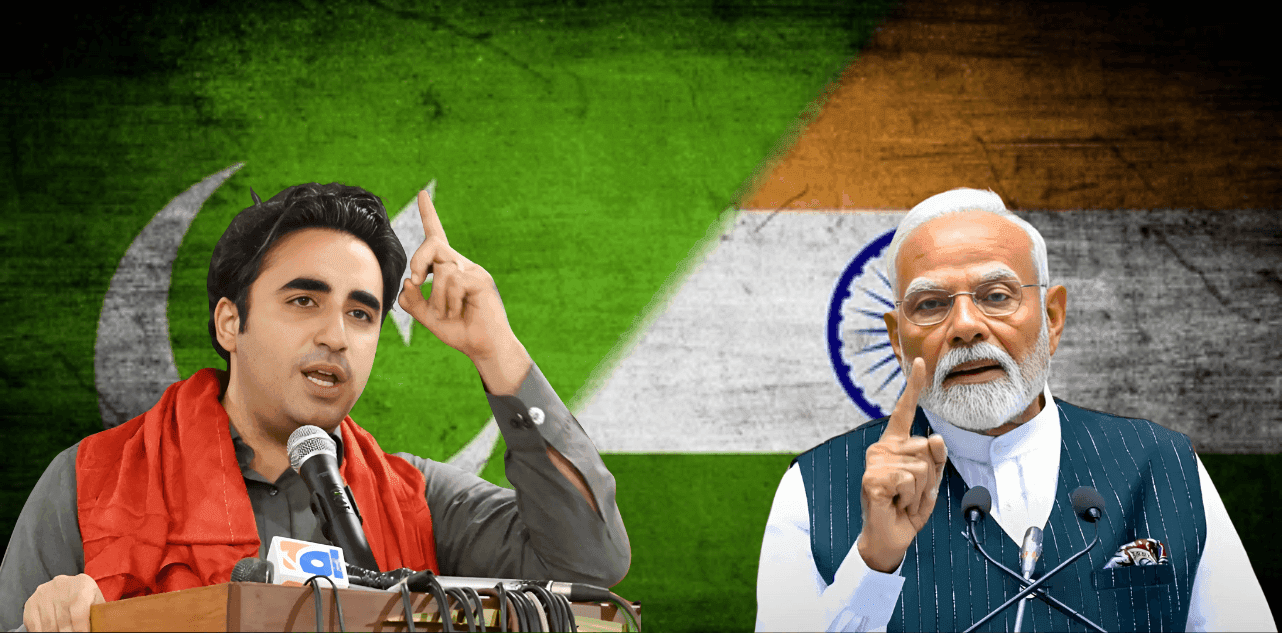Monday 16 February 2026
Either Water Will Flow or Their Blood': Bilawal Bhutto's Threat to India After Indus Treaty Suspension
Share

India-Pakistan tensions have risen acrid following India's suspension of the Indus Waters Treaty, a move which triggered Pakistan's former Foreign Minister Bilawal Bhutto-Zardari to deliver a scathing retort. Casting a voice in extremely charged terms, Bhutto-Zardari issued thinly veiled ultimatum to India when he was on the banks of the Indus River in Sukkur.
"Pakistan is being accused by India for the Pahalgam attack, where Modi has been twisting facts in an attempt to conceal his own weaknesses and mislead his nation. Modi unilaterally suspended the Indus Waters Treaty where India had accepted that Indus is Pakistani. As long as I am here at Sukkur on the bank of Indus, let me inform India that the Indus is and will remain ours. Either water will flow through this Indus or their blood will."
His words come just days after a deadly terror strike in Pahalgam, Jammu and Kashmir, that left 26 civilians, who were mostly tourists, dead. The attack, claimed by The Resistance Front (TRF)—an outfit believed to be a proxy of the banned Lashkar-e-Taiba—has once again raised old Indian charges that Pakistan continues to offer refuge and support terrorism along the border.
In retaliation for the Pahalgam attack, India started the formal suspension of the Indus Waters Treaty, a 1960 water-sharing deal facilitated by the World Bank. The treaty had regulated the allocation of six rivers between Pakistan and India, with the Indus, Jhelum, and Chenab rivers being mainly allocated to Pakistan.
India, represented by its Jal Shakti Ministry, wrote a letter to Pakistan's Ministry of Water Resources listing population changes, growing energy needs, and routine cross-border terror strikes as the justification for reconsideration of the treaty. India referred to Article XII (3) under which altered circumstances permit review or termination of the treaty specifically.
India raised the issue that the treaty could not be used in "good faith" as long as Pakistan continued to shelter terror outfits responsible for carrying out activities on Indian soil.
Bilawal Bhutto's statement, as much a repetition of the Pakistani government line, is also an indication of internal fissures within the country. India's move has triggered new protests and political turmoil, particularly in Sindh province, where concerns regarding water allocation have heightened.
“بھارت نے پہلگام سانحہ کا الزام پاکستان پر لگایا ہے، اپنی کمزوریاں چھپانے اور اپنی عوام کو بے وقوف بنانے کیلئے مودی نے جھوٹے الزامات لگائے ہیں اور یکطرفہ فیصلہ کرتے ہوئے سندھ طاس معاہدے کو معطل کیا ہے جس کے تحت بھارت تسلیم کرچکا کہ سندھو پاکستان کا ہے۔ میں یہاں سکھر میں سندھو کے… pic.twitter.com/OA2n1pEX7U
— PPP (@MediaCellPPP) April 25, 2025
The Cholistan Canals Project—pursued by the Pakistani military and Punjab provincial government—was delayed after Bhutto's Pakistan People’s Party (PPP) was forced and rose up in protest. As a response, Prime Minister Shehbaz Sharif met with Bhutto and agreed to suspend all new construction on the canal until an agreement was finalized through Pakistan's Council of Common Interests (CCI).
"Until such time that a decision is made with mutual understanding in the CCI, no other canal will be built," Sharif said at a joint press conference, signaling to try to damp down opposition within.
Concurrently, the Indian government has proceeded further to protect national interests. Union Home Minister Amit Shah directed state governments to identify and expedite the repatriation of Pakistani citizens in India on temporary visas. A high-level security review was also conducted to gauge the broader implications of suspending the treaty.
India's overseas missions have been aggressively approaching global allies to offer them proof of the perceived support that Pakistan extends to terrorism. Diplomats say India's policies are not aggressive but defensive in nature—designed to protect citizens and sovereignty from perennial threats along the borders.
The move has generated unprecedented interest from the global community. While Pakistan has vowed to take the issue to the global platform, labeling the suspension of the treaty as "illegal and against humanity," India has responded with a call for accountability and rules-based bilateral treaties engagement.
The United Nations and other global organizations have appealed to both nuclear powers to be cautious and attempt diplomatic solutions to stop the war.
Even while there have been such appeals, there is both sides' hot rhetoric—especially after Bilawal Bhutto's threatening statement, which has enraged India and frightened the world.
With diplomacy bridges burning and patriotic fervor mounting, suspending the Indus Waters Treaty could be India-Pakistan's tipping point. To India, the message couldn't be simpler, peace cannot journey where terrorism can thrive.
Newsletter
Stay up to date with all the latest News that affects you in politics, finance and more.